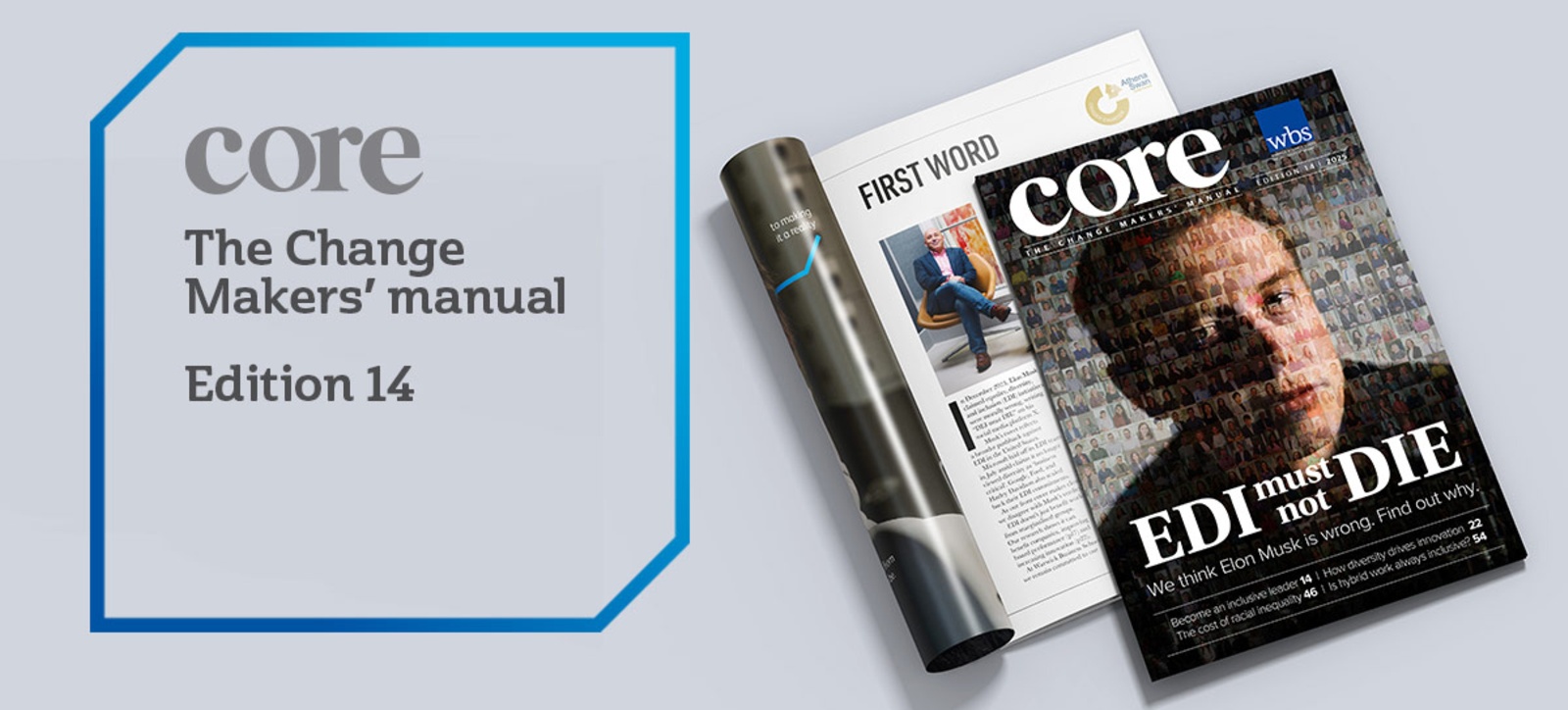
EDI must not DIE: Core 14 is full of research that shows why EDI remains as important as ever
Warwick Business School has launched its new edition of Core magazine devoted to equality, diversity, and inclusion (EDI).
This edition of the magazine is packed with research that reveals the ongoing inequalities in the workplace and society, highlighting the need for a more inclusive approach.
It also features research that reveals potential benefits for companies, such as increased innovation.
Core 14 includes articles on:
- Why fewer women are promoted to board room positions.
- How organisations can embrace more diverse and inclusive leadership.
- The power of AI to increase inclusivity or exacerbate exclusion.
- How transformative foreign investment could reduce regional inequalities.
It also features the inspiring stories of three WBS alum – Justin Farrance, Sophie Pullen, and Sami Dar – whose work to improve equality and inclusion embodies our Change Maker values.
And our CareersPlus and Employer Relations team offer invaluable advice to help neurodivergent professionals develop their careers.
Warren Manger, Editor of Core magazine and the Core Insights thought leadership series, said: “This edition of Core arrives at a crucial moment for the equality and inclusion agenda.
“Microsoft, Google, and Ford all scaled back their commitments this year and there has been a growing pushback against EDI from some quarters in the US.
“But the research our faculty have conducted shows there is a powerful case for EDI initiatives – both in terms of the need for greater inclusion and what well implemented initiatives can achieve.”
WBS became the first UK business school to earn an Athena Swan Gold Award for gender equality in 2023 and sponsors the annual WeAreTheCity’s Rising Star Awards to celebrate female talent.
It is also the only UK business school to offer a fully funded Foundation Year for students from deprived backgrounds who lack the A-level grades required for its Undergraduate programme.
The School also offers a range of scholarships for students from under-represented groups.
This year, 58 per cent of its Masters’ students and 46 per cent of its Full-Time MBA candidates are female.
WBS has also improved the diversity of its faculty. Approximately half of its assistant and associate professors are female and a third are from ethnic minority groups.
Andy Lockett, Dean of Warwick Business School and Professor of Strategy & Entrepreneurship, said: “EDI is about more than firm performance. It is about socio-economic inequality.
“Tackling that inequality is intrinsically the right thing to do, even when it is not the most profitable.
“Our record compares favourably to other UK business schools, but we know there is work to do to achieve balance across all our programmes and improve representation at professorial level.
“Improving EDI in the workplace is a challenge for any organisation, but it is one worth embracing.”
Read or download Core 14 for research, thought leadership, and practical advice on equality, diversity, and inclusion.




 X
X Facebook
Facebook LinkedIn
LinkedIn YouTube
YouTube Instagram
Instagram Tiktok
Tiktok